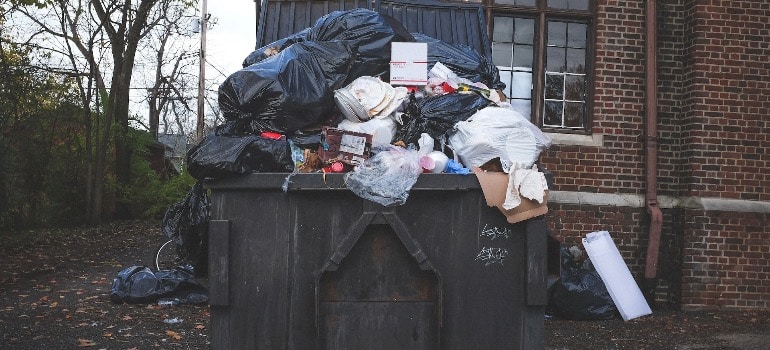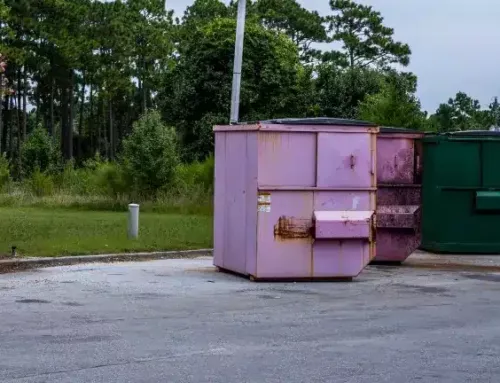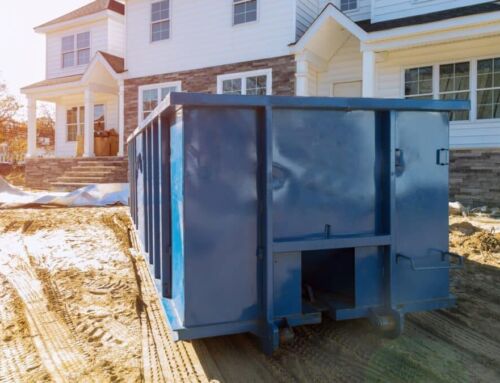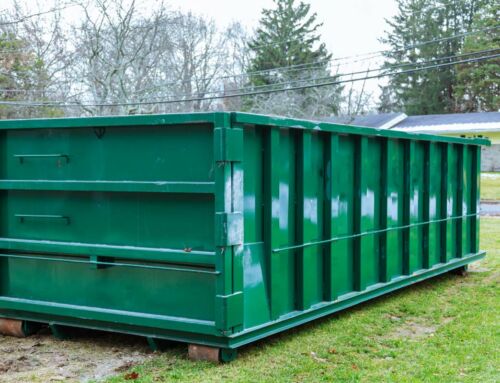Last Update
Table of Contents

Are you embarking on a major clean-out, renovation, or relocation? If so, you’re likely considering a dumpster rental to manage the waste that arises. But before you jump in, understanding how to organize your waste before renting a dumpster is pivotal. Properly organizing not only sets the tone for a more efficient cleanup but also significantly saves time and money. Additionally, it’s an environmentally responsible approach that reduces the strain on our landfills, promotes recycling, and contributes to a greener planet. Whether you’re a homeowner doing a spring clean-out or a business owner overseeing a relocation, proper waste management can drastically improve the efficiency of your project. Dive into this guide to uncover the best practices and tips for optimizing your dumpster rental experience.
Why is Organizing Waste Crucial Before Renting a Dumpster?
When embarking on a cleanup or renovation, managing waste might seem overwhelming. Yet, organizing your waste before diving into the process has numerous benefits. Firstly, there’s cost efficiency. Properly sorted waste ensures you rent a dumpster that’s just the right size, thereby preventing overspending on too-large containers or facing overage charges from overflow. Then, there’s the essential aspect of environmental responsibility. You can identify recyclable materials through organized waste, ensuring they don’t end up in landfills, thus supporting eco-friendly initiatives. The principle of efficient space use means every bit of the dumpster is utilized effectively.
Additionally, these methods are a way to save time with a dumpster rental. Lastly, safety can’t be emphasized enough. Organized waste minimizes sharp, hazardous, or potentially harmful items, safeguarding all involved in the disposal process.
Understanding Different Waste Categories
At a glance, trash might all look the same, but there’s a depth to waste that many overlook. Breaking down trash into specific categories is the first step in effective management.
- Household waste – This comprises those everyday items we dispose of routinely, like food packaging, broken toys, or worn-out clothes;
- Yard waste – This category is mainly comprised of organic materials; think fallen leaves, garden clippings, or pruned branches;
- Construction waste – Construction waste is a well-known struggle for those in the middle of renovations or construction. It’s the bulky, heavy stuff – concrete, discarded wood, or metals;
- Hazardous waste – These items, ranging from certain chemicals to specific electronics, can pose significant environmental and health risks.
Recognizing these distinct categories ensures each type of waste gets the appropriate treatment, whether recycling, composting, or secure disposal.
Steps to Organize Your Waste Before Renting a Dumpster
Starting with a heap of waste can feel daunting. However, organizing it transforms this challenging task into a manageable one. Let’s break it down step-by-step.
- Sort – Begin by categorizing your waste. It’s the foundation of an effective waste management strategy and provides clarity;
- Estimate volume – Knowing the amount of each category helps you anticipate the necessary dumpster size, making your rental more cost-effective;
- Deal with hazardous items – Special handling or disposal methods are often required for these, so it’s vital to separate them early on;
- Reconsider trashing usable items – many might still have life left in them. Consider donating or selling; it’s both eco-friendly and can be rewarding;
- Space is a premium – To make the most of it, flatten boxes, dismantle furniture, and break down larger items—every inch saved counts.
Tips for Homeowners and Business Owners
Whether you’re a homeowner knee-deep in home renovations or a business owner orchestrating an office clean-out, the process is similar when setting out to organize your waste before renting a dumpster. Here are some tailored insights to guide both groups:
- Safety first – This is more than just a catchphrase. It’s an imperative. Whether you’re dealing with shattered glass or splintered wood, gloves and protective gear are non-negotiable;
- Embrace sustainability – Make an extra effort to separate recyclables, and if possible, explore composting options for organic waste;
- Learn about local regulations – Awareness of local regulations is paramount. Different locales have specific waste disposal guidelines. Familiarize yourself with these to avoid fines or penalties;
- Choose the right dumpster size – Taking a moment to choose the right dumpster size is pivotal. Accurate sizing ensures you don’t overspend and effectively helps you save money on a dumpster rental;
- Choose the right location – Location is key. Make sure to position your dumpster in an accessible spot, making disposal easy and efficient.
Avoiding Common Mistakes When Renting a Dumpster
Renting a dumpster seems straightforward, but several pitfalls can trip up even the most cautious renter. Here’s a comprehensive look at common mistakes and how to sidestep them:
- Overfilling – Overeagerness often leads to overfilling. While it’s tempting to cram as much as possible, exceeding the dumpster’s fill line can lead to extra fees and safety hazards;
- Mixed waste types – Mixing different kinds of waste can be problematic. Not all waste is created equal. Combining prohibited items can lead to penalties or even require you to sort the dumpster’s contents;
- Ignoring weight limits – Heavy items pile up fast, and ignoring weight limits is very risky. An overloaded dumpster can mean unexpected charges or even damage to your property;
- Unknown restrictions – These catch many off guard. Some items, like certain electronics or chemicals, have specific disposal requirements. Being informed ensures you’re compliant and eco-conscious.
Using a Dumpster Rental for Relocation
When businesses relocate, especially in bustling areas like LA, an enormous volume of waste is generated. Old office chairs, stacks of outdated paperwork, and obsolete electronic equipment have to go somewhere. Enter dumpster rentals, the unsung heroes that simplify this process immensely.
But as with all things business, strategy is everything. As you organize your waste before renting a dumpster, the same meticulous planning should go into choosing the right commercial movers. Both aspects play a pivotal role in ensuring a smooth transition. A well-planned commercial relocation, combined with organized disposal, reduces downtime. This efficiency lets businesses get back on their feet faster, making the process not just about physical relocation but also optimal business continuity. Remember, the right tools and partnerships can make all the difference.
In Conclusion
It’s evident that effective waste management is more than just a chore—it’s an art and science. Taking the time to organize your waste before renting a dumpster is not merely a task on your checklist but a proactive step toward eco-friendliness, safety, and cost-efficiency. By taking these steps, homeowners and business owners can contribute to a more sustainable environment while ensuring a seamless and stress-free waste disposal experience. Moreover, when we delve into specific scenarios like commercial relocations, the importance of meticulous planning, from selecting the right dumpster rental company to choosing the best commercial movers, is magnified. With this guide, you can make the most informed, efficient, and environmentally responsible choices for your waste management needs, setting a standard for others to follow.




